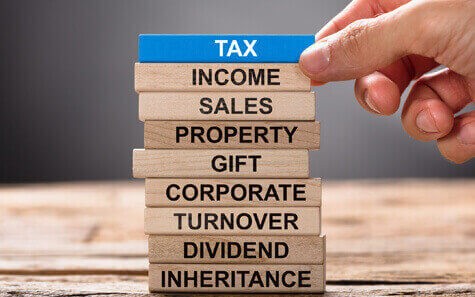Tax mix to rely more heavily on income tax as the Treasurer ducks austerity

The federal government on Monday released its 2021 Intergenerational Report (IGR), the fifth of its kind, which forecast slowed growth for the Australian economy over the next 40 years as Australia’s population ages, and puts pressure on federal deficit repayment.
Personal income tax receipts are expected to grow faster than GDP, increasing from 11.1 per cent of GDP in 2020–21 to 12.7 per cent of GSP in 2035–36.
This will account for 53.1 per cent of total taxation receipts, up from 49.6 per cent this financial year.
The report goes on to suggest that company tax receipts will likely remain volatile as indirect and consumption-based taxes form a smaller proportion of total tax receipts than they have in the past.
Committee for Economic Development of Australia (CEDA) chief executive Melinda Cilento said the government’s assumption that Australia’s tax mix will mostly rely on income tax isn’t a realistic one.
“Comprehensive tax reform must be put back on the table, with a renewed resolve to reshape the system to sustain a strong and dynamic economy and pay for the essential services so important to our communities,” Ms Cilento said.
Treasurer Josh Frydenberg said the report details the long-tail impacts the COVID-19 pandemic are likely to mount in the face of the Australian economy but warned against hiking taxes.
“Our population is growing slower and ageing faster than expected,” Mr Frydenberg said. “The Australian economy will continue to grow, but slower than previously thought. Growth will continue to be highly dependent on productivity gains.
“Growing the economy is Australia’s pathway to budget repair, not austerity or higher taxes. Only by growing the economy can we continue to guarantee the essential services Australians rely on.”
An ageing population
According to the IGR, the old-age dependency ratio in 2019–20 was 4.0 working-age people for every person aged over 65. The ratio is projected to fall further by 2060–61 to 2.7 working-age people for every person over 65.
The fall, according to the report, presents challenges for Australia’s long-term economic growth and fiscal outlook, as a working-age person’s taxes will be required to support a greater number of people aged over 65, with no revenue mechanisms yet in place to offset the nation’s ageing population unable to work.
It highlights that a larger, older population will require greater government spending in healthcare, the Age Pension and end-of-life support, and has implications for participation and productivity growth.
As the population continues to age and adds pressure to the budget, the report suggests government policy will need to adapt and foster economic growth to overcome these fiscal challenges, instead of generating feasible revenue streams to support them.
“While Australia’s debt is sustainable and low by international standards, the ageing of our population will put significant pressures on both revenue and expenditure,” it said.
The report goes on to highlight that future governments will need to manage spending pressures by “improving the efficiency of service delivery” and delivering services like health and aged care via targeted programs paid for by the lowest, most “efficient” taxes possible.
Mr Frydenberg said federal deficits are expected to decline from current GDP of 7.8 per cent to 0.7 of a percentage point in 2036–37, before widening to 2.3 per cent in 2060–61.
“It’s a trajectory similar to many of the previous IGRs reflecting the impact of an ageing population and existing policy settings,” Mr Frydenberg said. “However, the budget position is significantly better than projected in most past IGRs.
“The Howard government’s 2002 and 2007 IGRs forecast deficits at the end of the 40-year period of 7 per cent and 5 per cent, respectively, and the Rudd government's 2010 IGR forecast a deficit of 4 per cent in 2050.”
On economic growth, the Treasurer said governments will need to invest further in skills, infrastructure and digital transformation, along with a more efficient tax system, though he shied away from detailing what that might look like, in both his speech, and the report.
“With productivity responsible for over 80 per cent of Australia’s national income growth over the past 30 years, the task is obvious and the choice is clear,” Mr Frydenberg said.
“If we want to maintain our living standards, generate higher wages and create more jobs, Australia has no alternative other than to pursue economic reform, much of which is hard and contested.”
John Buckley
29 June 2021
accountantsdaily.com.au





